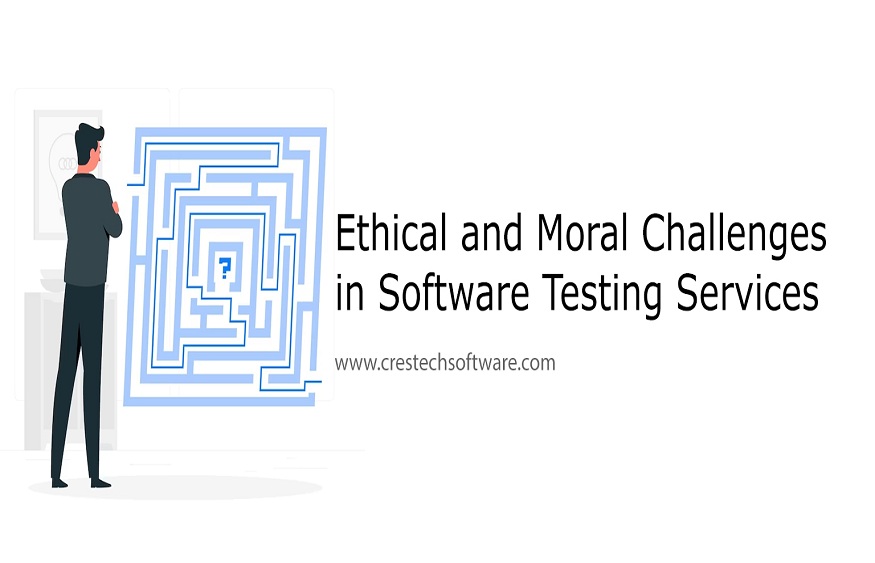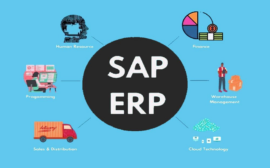In the digital age, software has become an integral part of our lives, influencing everything from our personal interactions to critical infrastructure. To ensure the reliability, security, and functionality of software, rigorous testing is essential. However, the field of software testing services is not immune to ethical and moral challenges.
This article explores some of the most pressing ethical dilemmas faced by software testers and how they impact the development and deployment of software.
1. Data Privacy and Security
One of the foremost ethical challenges in software testing revolves around data privacy and security. Testers often work with sensitive user data to evaluate the software’s functionality. However, the misuse or mishandling of this data can lead to significant breaches of privacy and security. Ensuring that testers adhere to strict data protection protocols is imperative to maintain trust and safeguard sensitive information.
2. Bias and Fairness
Bias in software testing can lead to unjust outcomes. If testers unknowingly introduce biases or if the testing process fails to account for diverse user groups, it can perpetuate discrimination. Testers must actively identify and mitigate biases, considering factors such as gender, race, and socioeconomic status to ensure that software serves all users fairly.
3. Transparency
Transparency is a cornerstone of ethical software testing. Testers must clearly communicate their findings and methodologies to developers and stakeholders. Failing to do so can lead to misleading results or the suppression of critical information, which ultimately harms the end-users and the reputation of the software.
4. Autonomous Systems
As software testing increasingly involves autonomous systems and AI, ethical dilemmas become more complex. Testers must ensure that AI-driven testing processes are transparent, accountable, and free from unintended biases. Additionally, decisions made by autonomous systems, such as test case prioritization, should align with human values and ethical standards.
5. End-User Impact
Software failures can have far-reaching consequences. Ethical dilemmas arise when testers must decide whether to prioritize project timelines over thorough testing. Cutting corners in testing to meet deadlines can lead to subpar software that jeopardizes user safety and security. Testers must strike a balance between project constraints and ethical responsibilities.
6. Whistleblowing
When testers discover ethical violations or security breaches during testing, they face the moral dilemma of whether to blow the whistle. Reporting such issues can lead to job loss or strained professional relationships. However, it is essential for testers to prioritize the greater good by reporting unethical practices to protect users and maintain the integrity of the software.
7. Conflict of Interest
Conflict of interest can cloud the ethical judgment of software testers. For instance, testers who have personal or financial ties to the software project may be tempted to overlook critical issues. Establishing clear guidelines and codes of conduct can help testers navigate potential conflicts and ensure impartiality.
8. Informed Consent
Application testing service often involves real users who participate voluntarily. It is essential that users provide informed consent, understanding the scope of testing and any potential risks. Ethical testers should prioritize transparency and ensure that users’ rights and safety are upheld throughout the testing process.
9. Environmental Impact
The environmental impact of software testing is another emerging ethical concern. Large-scale testing operations, especially those involving cloud computing resources, can contribute to excessive energy consumption and carbon emissions. Testers must consider environmentally sustainable testing practices, such as optimizing resource usage and choosing eco-friendly infrastructure.
Conclusion
The ethical and moral challenges in software testing services are increasingly complex and vital to address in our technology-driven society. Testers play a critical role in ensuring that software is reliable, secure, and ethical. To meet these challenges, industry standards and guidelines should be continuously updated, and professionals must prioritize ethical considerations alongside technical proficiency. Only by doing so can we create a digital landscape that is fair, transparent, and respectful of individual rights and values.



